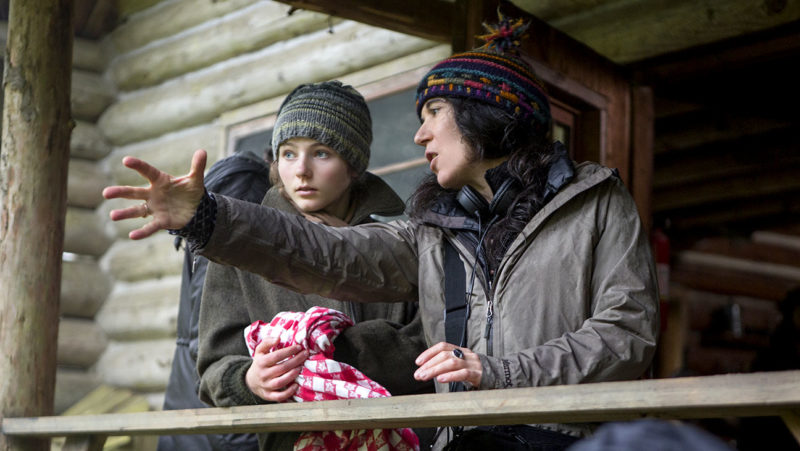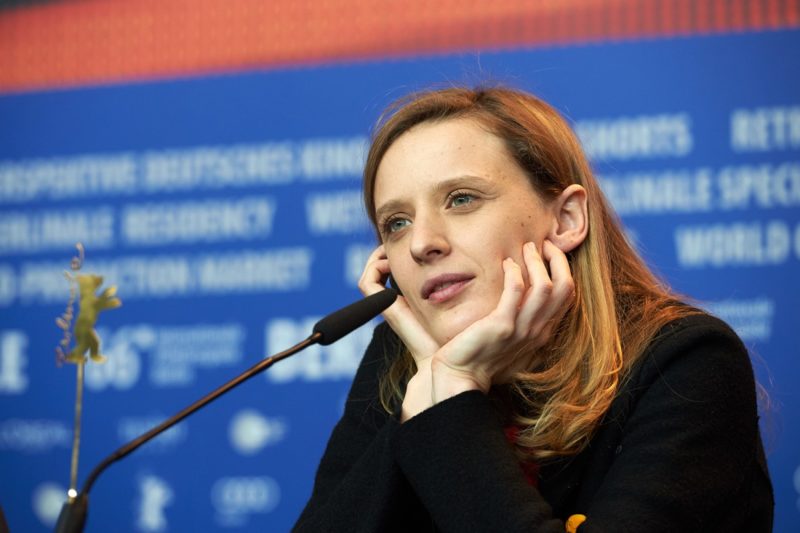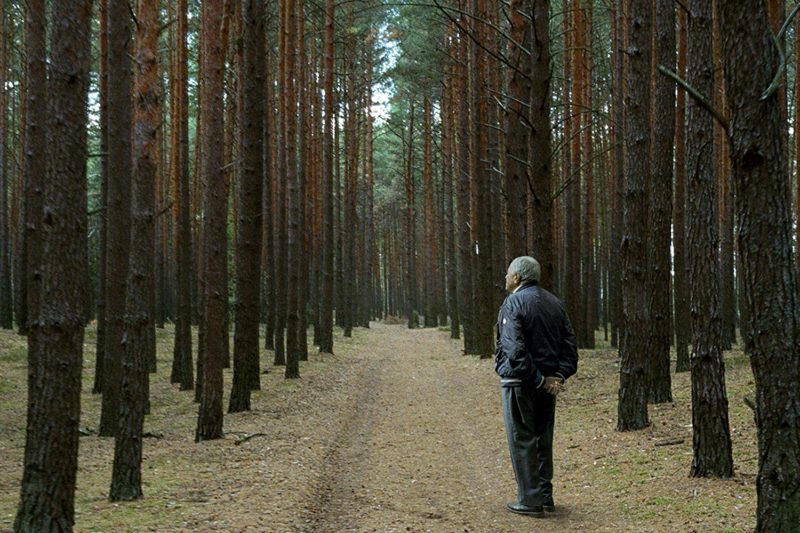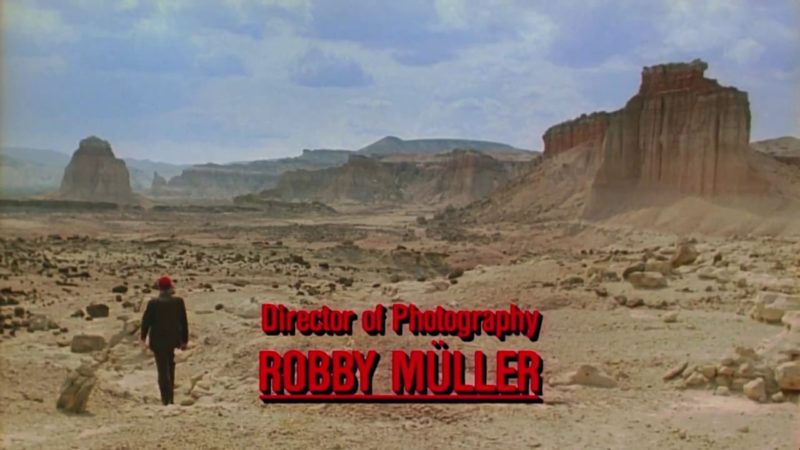News to Me: Debra Granik, Mia Hansen-Løve, Claude Lanzmann
Debra Granik

Debra Granik on the set of Leave No Trace
For the past three and a half years, Leave No Trace and Winter’s Bone director Debra Granik has been collecting footage for her next documentary project: a study of four men and one woman, across multiple New York boroughs, navigating life after incarceration.
“They were allowing us to document and chronicle and stay with them a bit, and try to, as best we could, find the moments that were extremely difficult, [as well as] the moments where success was sweet,” Granik told Film Comment. “Now we have a lot of footage, and we have to put it together. It’s a longitudinal study of that journey.”
The idea for the documentary, which will mark Granik’s second after 2014’s Stray Dog, was sparked by a screenplay that she considered directing. “This particular script ended where I wanted to start the film,” she observed. “It was a disconnect from what I thought was my core interest, which was: how does one stay out? Not what forces one back in.”
Granik recalled being impressed by the “academic torque” of documentaries released in the wake of Michelle Alexander’s book The New Jim Crow. “How can this theme be looked at outside of the stale way that we’ve looked at it for 25 years, and the grotesque misunderstandings embedded in that?” she asked. “I admire those who present scholarship, but I feel like my niche is more how to get at it from the personal perspective of a lived experience.”
Noting the sprawling nature of the subject, Granik plans to center her investigation on class and capital. “A big part of this film is how do bourgie people allow reentry to even happen?” Granik explained. “It takes the torque of, in this case, people of color to push, and ask, to seek, to stay alive. It’s this unbelievable, arduous wrestling match with mainstream society, but it takes bourgie people to patronize their businesses, to care, to make financing available, to do a lot of things that don’t keep this strangely liberal glass wall in place.”
In addition to postproduction on the recidivism doc, Granik is also adapting Barbara Ehrenreich’s investigation of the 1996 welfare reform act, Nickel and Dimed. “The sociology of Barbara’s book brings into play a really rich [sense of] location, and issues around poverty wages,” Granik said. “That’s a tough blow to withstand as a working-class American, that your wages have been decommissioned and devolved, but you’re still expected to procreate, live your life, and not break the law.”
Granik feels that her projects in fiction and documentary are in dialogue with one another, and sees this interaction as a crucial part of her process. “They’re always in conversation, and that can be hard—you wish they could be in separate parts of the brain, but they do cross the border frequently,” Granik remarked. “That’s really the hallmark of social realism: it seeks to slow down stories out of the chaos using lived experience, people who can bring it, and then also actors who can help organize it. Trying to find a playing field in which those two forces can basically interact.”
In her nonfiction work, Granik highlights the impossibility of conclusive endpoints. “There’s no done, there’s [only] a stopping place,” she emphasized. “Other subjects knock on your door, and you’ve got to be able to divvy up your time. There’s epilogues to every story—I think I mollify myself by saying, in a couple of years we could go back.”
Films on the Horizon:

Mia Hansen-Løve at Berlinale 2016 for Things to Come
Next week, Mia Hansen-Løve begins filming her English-language debut, Bergman Island, on the titular filmmaker’s home island of Farö, Sweden. The film, starring Greta Gerwig, John Turturro, and Mia Wasikowska, depicts a filmmaking couple’s personal and professional friction on a trip to the island’s annual “Bergman Week” … Two years after Happy Times Will Come Soon, Alessandro Comodin is scouting in the Friuli-Venezia Giulia region of northeastern Italy for his next film, a documentary tentatively titled Olga’s Garden … Feras Fayyad will follow up Last Men in Aleppo with The Cave, a chronicle of underground female doctors’ work with victims of chemical warfare in Syria. Afterwards, he plans a third documentary to complete this trilogy on the Syrian civil war.
Readings:

Claude Lanzmann in The Last of the Unjust
✸ Claude Lanzmann, who died this week at age 92, was the subject of the first Film Comment podcast, a discussion between J. Hoberman and Joshua Oppenheimer. Timothy Snyder wrote thoughtfully of the director for the New York Review of Books on the occasion of the 25th anniversary revival run of Shoah.
✸ Djibril Diop Mambéty explains the simplicity of his filmmaking practice in this brief clip. He goes in-depth in this conversation with N. Frank Ukadike, published in Transition in 1998.
✸ Jordan Peele’s Monkeypaw Productions has brought onboard Kamil Oshundara as a cultural executive. An artist and academic with a background in community organizing, Oshundara will conduct cultural research to enrich the company’s depictions of marginalized groups, while also creatively supervising projects.
✸ In the new issue of Cinema Scope, Kelley Dong looks at sexual politics in Korean cinema through the creative collaboration between director Kim Ki-young and actress Lee Hwa-si.
✸ Jean-Luc Godard crafted an ad for the 22nd Jihlava International Film Festival (listen with headphones).

R.I.P. Robby Müller (1940-2018)







